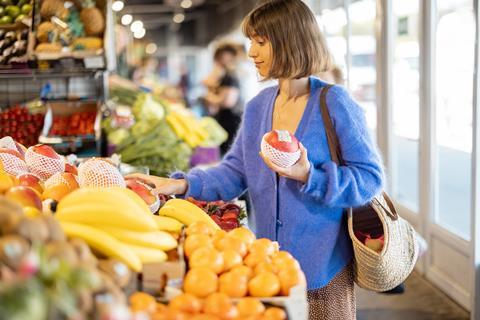Banana Link issues call for French supermarkets to accept shared responsibility
Banana consumption continues to rise in France, becoming the most consumed fruit in 2024, while retail prices have also been on the rise. Against this backdrop, French supermarket buyers are applying unprecedented pressure to obtain abnormally low purchase prices from their suppliers.

Between 2022 and 2024, French retailers went from being understanding partners of banana producers to becoming the biggest obstacle to their income. The commercial negotiations for the 2025 banana supply contracts were the longest in history, precisely because the French retailers wanted even lower prices than in 2024.
At a time when significant social, environmental and other investments are being made to maintain and ensure the sustainability of the banana production sector, even at the behest of European supermarkets, these virtuous efforts are being ignored and jeopardised by the attitude of major French buyers during the trade negotiations.
In seven northern European countries, public commitments have been made to ensure that all those who work on banana plantations in Africa, the Caribbean and Latin America can earn a living wage with dignity. Some 40 major food retailers have distinguished themselves by making this commitment. But in France, for the moment, no retailer has made such a commitment.
This push for lower prices comes at a time when producers and workers in many banana-exporting countries have agreed to negotiate living wages for all employees in the sector. The leading supplier of bananas to France is a case in point: in Côte d’Ivoire, all banana-producing companies and workers’ unions made a public commitment in September 2024 to negotiate the first national collective agreement by 2026, in order to create the legal framework and conditions for raising wages to a level that allows everyone to cover the basic costs of living.
Alistair Smith, international coordinator of the NGO Banana Link, commented: “There are exceptions to the trend among the major chains present on the French market, but they are not French-based chains. For example, one major French chain contributed to efforts in Côte d’Ivoire to prepare the sector for negotiations on a living wage; but during the commercial negotiations for 2025, this same company could even see how its purchasing behaviour in France is at odds with the approach in Africa, which it has nevertheless supported”.
National efforts similar to those in Côte d’Ivoire will be launched or stepped up during 2025 in Cameroon, Ghana, Costa Rica, Colombia and the Dominican Republic. Together, these countries supply two out of every three bananas consumed on the French market.
Smith continued: “Do the producers and workers in this pioneering and exemplary sector deserve to be punished for moving in the direction of social and economic justice and for leading efforts to achieve a global agro-ecological transition?”
The social and environmental investments made in a tangible way must be recognised by supermarket buyers. There is a multi-stakeholder space for the French banana industry. The other players in the French Initiative for a Sustainable Banana are ready to discuss calmly, provided that there is a collective and individual commitment on the part of retailers.
“If we want a sustainable banana sector that allows each link in the value chain to exist and continue to carry out the activities that fall within its competence and capacity, we have to accept shared responsibility,” Smith said.
We need to act together today so that we do not perish together tomorrow, because when the producers and their businesses disappear, the other links in the chain will no longer be able to exist. We are interdependent and must accept shared responsibility.



